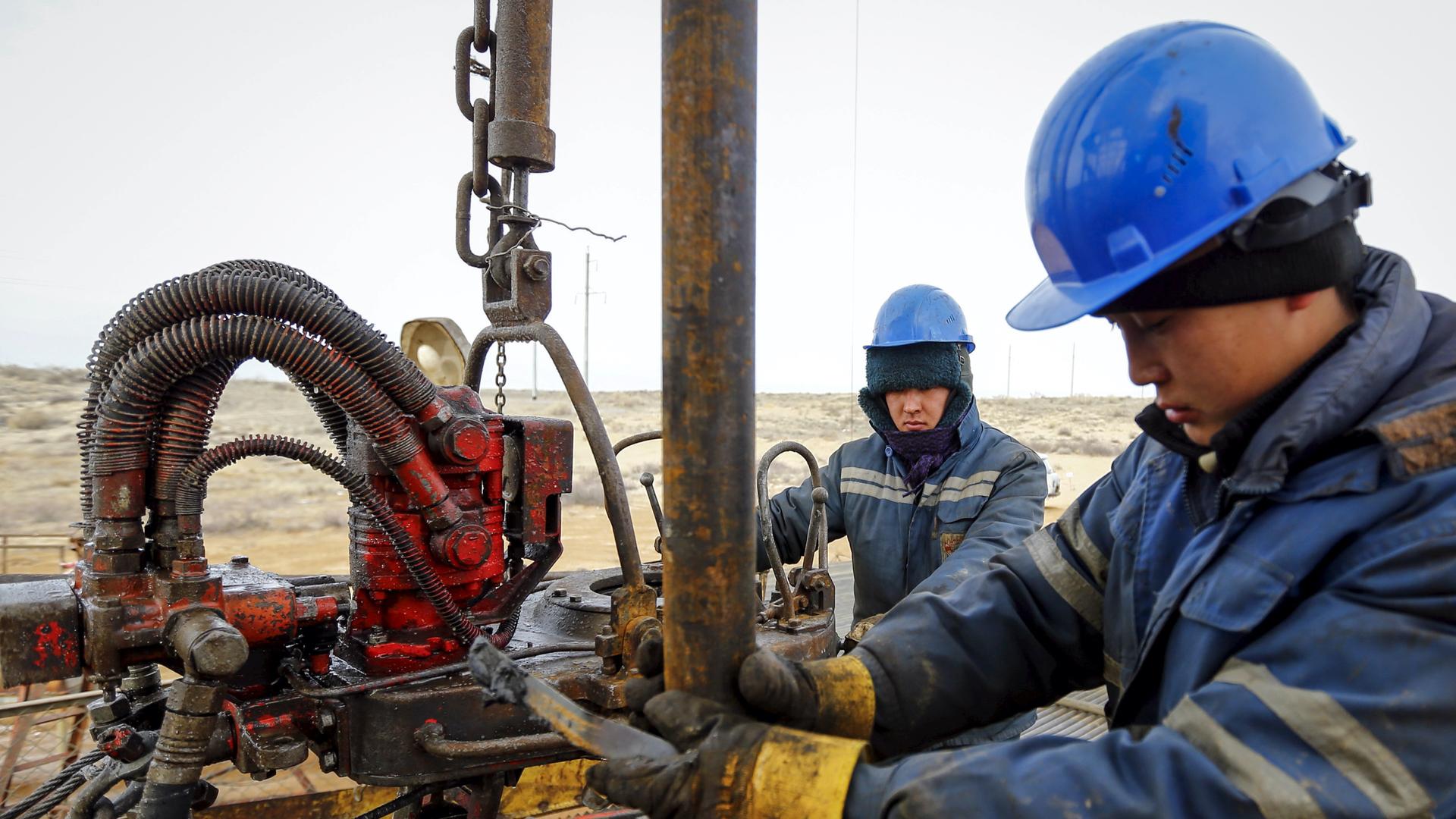This analysis was featured in Critical State, a weekly newsletter from The World and Inkstick Media. Subscribe here.
Last week’s Deep Dive on the origins of water conflict looked at how future resource scarcity might lead to deeper political cleavages in some areas than in others. This week, Critical State takes a deep dive into areas where major discoveries of underground resources promise to turn areas of resource scarcity into areas of resource abundance.
As has been covered previously in Critical State, development and conflict researchers are increasingly interested in the “presource curse” — a phenomenon in which a country suffers ill effects normally associated with natural resource wealth before the resource in question has even come out of the ground. The phenomenon is well-documented, but the mechanism by which it happens is not well-understood. Why does the mere promise of natural resource wealth seem to cause conflict and corruption, even before there are any gains from the resource to distribute?
Related: Putting the ‘scare’ in scarcity conflicts: Part I
A new paper by economists Victoire Girard, Alma Kudebayeva and Gerhard Toews makes progress on answering that question by investigating a closely related question: How do people react to resource price shocks in countries where resource economies are already highly developed? When people work in, for example, the oil sector, how do they feel when the world oil price suddenly jumps and they might reasonably expect a financial windfall as a result? Those expectations are arguably similar to those experienced by people who are awaiting new oil extraction that will bring large levels of foreign investment to their country — that is, people in danger of falling victim to the presource curse.
Related: China’s new Silk Road traverses Kazakhstan. But some Kazakhs are skeptical.
Girard et al. use data from a household panel survey in Kazakhstan that asked people how satisfied they were with their incomes to see how people responded to potential oil windfalls. Oil is big business in Kazakhstan, and there is a major oil production industry in the western part of the country. Prior to the oil price boom of 2004, however, the industry was comparatively small, since the low world price of oil made it uneconomical to actually drill many of the Kazakh oil finds. As the price of oil increased, however, so did the size of the Kazakh oil industry, eventually contributing to an eight-fold GDP per capita increase between 1999 and 2010.
In parts of Kazakhstan where the growing economy was only indirectly affected by oil, everyone felt basically the same about their financial situations. Whether they worked in the public or private sector, people who made less money than the national average weren’t thrilled about it, while people who made more money were generally quite pleased. They felt that way when the price of oil was low, and they continued feeling that way when it went up — no real change.
In the parts of Kazakhstan where oil is actually produced, however, Girard et al. found some big distinctions between private and public-sector workers. Public-sector workers in oil-producing areas basically act like Kazakhs in the rest of the country — they like making more money than their neighbors, they dislike it when their neighbors make more than them, and the price of oil doesn’t change that calculus. Private-sector workers in oil-producing areas — that is, oil-sector workers — have a very different take. They still prefer to make more money than average, but their satisfaction is much more closely correlated to the world oil price than anyone else’s.
Related: Has Kazakhstan forgotten about its Polygon test survivors?
Not only do oil-sector workers care about oil prices, but they care in a somewhat counterintuitive way. Between 2001 and 2004, when oil prices were relatively low, oil-sector workers were generally more satisfied with their incomes than public-sector workers who made the same wage as them. Then, between 2005 and 2009, after oil prices shot up, oil-sector workers were much less satisfied than public-sector workers at the same wage levels.
There is a range of explanations for why people might be dissatisfied with their incomes as the value of national resource wealth grows, but most of them — anger over resource wealth leaving the country, for example — should affect people in every sector and region, not just oil-sector workers. The dissatisfaction within the oil sector, Girard et al. argue, derives specifically from the sky-high expectations brought on by the oil price boom. Even though the increased oil price did bring income gains within the industry, those gains could not keep pace with the beliefs workers had about how they would benefit from hundred-dollar crude.
If conflict and dissatisfaction in the runup to a resource boom derives more from high expectations than from actual resource mismanagement, then the managing of expectations is a paramount concern in conflict prevention. The idea, popular among development economists in the 2000s, that natural resource discoveries could be a cure-all in developing countries may have driven up expectations, heightening the chance of the presource curse taking hold. Resource wealth can drive short-term growth, but even the act of seeing it as a panacea can turn it into a poisoned chalice.
Critical State is your weekly fix of foreign policy without all the stuff you don’t need. It’s top news and accessible analysis for those who want an inside take without all the insider bs. Subscribe here.
The story you just read is not locked behind a paywall because listeners and readers like you generously support our nonprofit newsroom. If you’ve been thinking about making a donation, this is the best time to do it. Your support will get our fundraiser off to a solid start and help keep our newsroom on strong footing. If you believe in our work, will you give today? We need your help now more than ever!
